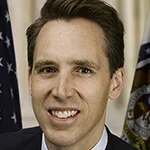 |
| Jon Gingerich |
If you haven’t been living under a rock these past several years, no doubt you’re privy to the debate surrounding cancel culture, the ritual of shaming people who’ve been caught saying or doing objectionable things online, a phenomenon that’s turned social media into what writer Matt Taibbi called a “giant finger-wagging machine.”
The conversation took a sharp turn in July with the publication of Harper’s “Letter on Justice and Open Debate,” a completely well-reasoned call-to-arms signed by 150 prominent authors, journalists and academics that decried an “intolerance of opposing views” that threatens to “weaken our norms of open debate and toleration of differences in favor of ideological conformity.”
The pushback this letter received—in countless essays, in a gallimaufry of blogs and social media posts—was puzzling. Much of the criticism focused on oddly Trumpesque attempts to attack the letter for what it didn’t say, or for its timing (this has always been a favorite fallacy of mine: “Now isn’t the time to talk about x!” “We should be discussing y!”). Others resorted to whataboutism, using the forum as an opportunity to address their longstanding grievances with the magazine, or chose to disregard the letter because of previous actions/words of a particular signatory. Many pointed to the easy irony of elite signatories addressing the perils of censorship in a prestigious publication without fear of reprisal, as though these luminaries possess only enough imagination to write about their own self-interests, that it would never dawn on them to come to the defense of others who’ve been the targets of online mobs. More than a few said cancel culture is an overblown myth, merely the latest example of democracy in action.
Most of these arguments aren’t very sound, but to borrow from one of them—if only to highlight its flimsiness—it’s true that cancel culture isn’t fundamentally about freedom of speech. People have a constitutional right to say whatever they want, yet there remain—and there should be—consequences for our words. Horses for courses.
| This article is featured in O'Dwyer's Aug. '20 Financial PR/IR & Professional Services PR Magazine. |
The problem with cancel culture is less an issue of strangers being mean to someone on the Internet than it is an acknowledgment of what are obvious flaws in a social system where the private sector has been charged with adjudicating a final judgment once these cultural vigilantes begin demanding the offender be held accountable for his/her words.
For years, brands—corporations, universities, sports franchises—have ridden social movements as a marketing opportunity. And under immense public pressure, they now find themselves effectively merchandising outrage into a series of press-release-ready gestures, acquiescing to the demands of the mob and throwing employees under the bus seemingly without the good-faith considerations that all healthy internal cultures have: that maybe someone’s words were taken out of context, or they misspoke, or they need counseling, or—God forbid—they made a mistake. But take solace in this: after you’ve been fired and your career has been ruined and you’ve been deemed radioactive by the community, you remain free to speak your mind.
Granted, there are open-and-shut cases where people should’ve lost their jobs. But there are others where the consequences clearly outweighed the crime. Was it necessary for soccer team LA Galaxy to fire player Aleksandar Katai in response to a series of tweets made by his wife criticizing the George Floyd protesters? Should food vendors boycott a Minneapolis restaurant because racist and anti-Semitic social media posts were discovered to have been written by the founder’s daughter eight years prior—when she was fifteen? Why was Boeing communications chief Niel Golightly forced to resign after an employee dug up an article he wrote in 1987 questioning women’s ability to serve in combat? What sort of social justice did a consulting firm have in mind when it fired a researcher for merely sharing via Twitter a peer-reviewed study on the positive political effects of nonviolent protests? Was it really in Publicis’ best interest to fire one of its executives for tweeting about the coronavirus?
Companies are taking the easy way out. They’ve been inculcated to the notion that it’s better PR to fire someone, reach a consensus with social media activists and get the virtue points than it is to take a stand and demonstrate an ability to lead in cases where public opinion is wrong. It’s compliance disguised as leadership, the same performative gestures from institutions who love to tell you how they “think outside the box” as they reflexively mete out punishment to anyone who presents a view or opinion that runs counter to the prevailing narrative.
For years, the traditional reading has been that we’ve given too much power to the crowds, but no one considers the far more dangerous implication—especially among younger people who claim to harbor a disdain for capitalism—that we sure are handing over a lot of undue power to corporations. Businesses are increasingly being called upon to fill the gaps left by an administration that has failed us, and now we’re willfully ceding control for them to serve as the arbiters in determining what words or topics are off-limits. What could go wrong?


 Republican tough guys Josh Hawley and Tom Cotton want Biden to send the National Guard to Columbia University to put an end to student protests... Bernie blasts Bibi for insulting America's intelligence by equating criticism of Israel's government with antisemitism... German court convicts former financial PR exec who claims he wasn't aware that trading on tips is illegal.
Republican tough guys Josh Hawley and Tom Cotton want Biden to send the National Guard to Columbia University to put an end to student protests... Bernie blasts Bibi for insulting America's intelligence by equating criticism of Israel's government with antisemitism... German court convicts former financial PR exec who claims he wasn't aware that trading on tips is illegal.  Southern governors claim they know what's best for their working class, and it's not pay raises... A Ukrainian human rights group played a key role in convincing House Speaker Mike Johnson to hold a vote to send arms to Ukraine, Israel and Taiwan... Trump Media & Technology Group blames short-selling and not lousy outlook for its stock slump.
Southern governors claim they know what's best for their working class, and it's not pay raises... A Ukrainian human rights group played a key role in convincing House Speaker Mike Johnson to hold a vote to send arms to Ukraine, Israel and Taiwan... Trump Media & Technology Group blames short-selling and not lousy outlook for its stock slump. The techniques deployed by OJ Simpson's defense team in the 'trial of the century' served as a harbinger for those used by Donald Trump... People worry about the politicization of medical science just as much as they fret about another pandemic, according to Edelman Trust Barometer... Book bans aren't restricted to red states as deep blue Illinois, Connecticut and Maryland challenged at least 100 titles in 2023.
The techniques deployed by OJ Simpson's defense team in the 'trial of the century' served as a harbinger for those used by Donald Trump... People worry about the politicization of medical science just as much as they fret about another pandemic, according to Edelman Trust Barometer... Book bans aren't restricted to red states as deep blue Illinois, Connecticut and Maryland challenged at least 100 titles in 2023. The NBA, which promotes legalized gambling 24/7, seems more than hypocritical for banning player for placing bets... Diocese of Brooklyn promises to issue press release the next time one of its priests is charged with sexual abuse... Truth Social aspires to be one of Donald Trump's iconic American brands, just like Trump University or Trump Steaks or Trump Ice Cubes.
The NBA, which promotes legalized gambling 24/7, seems more than hypocritical for banning player for placing bets... Diocese of Brooklyn promises to issue press release the next time one of its priests is charged with sexual abuse... Truth Social aspires to be one of Donald Trump's iconic American brands, just like Trump University or Trump Steaks or Trump Ice Cubes. Publicis Groupe CEO Arthur Sadoun puts competition on notice... Macy's throws in the towel as it appoints two directors nominated by its unwanted suitor... The Profile in Wimpery Award goes to the Ford Presidential Foundation for stiffing American hero and former Wyoming Congresswoman Liz Cheney.
Publicis Groupe CEO Arthur Sadoun puts competition on notice... Macy's throws in the towel as it appoints two directors nominated by its unwanted suitor... The Profile in Wimpery Award goes to the Ford Presidential Foundation for stiffing American hero and former Wyoming Congresswoman Liz Cheney.


 Have a comment? Send it to
Have a comment? Send it to 
No comments have been submitted for this story yet.